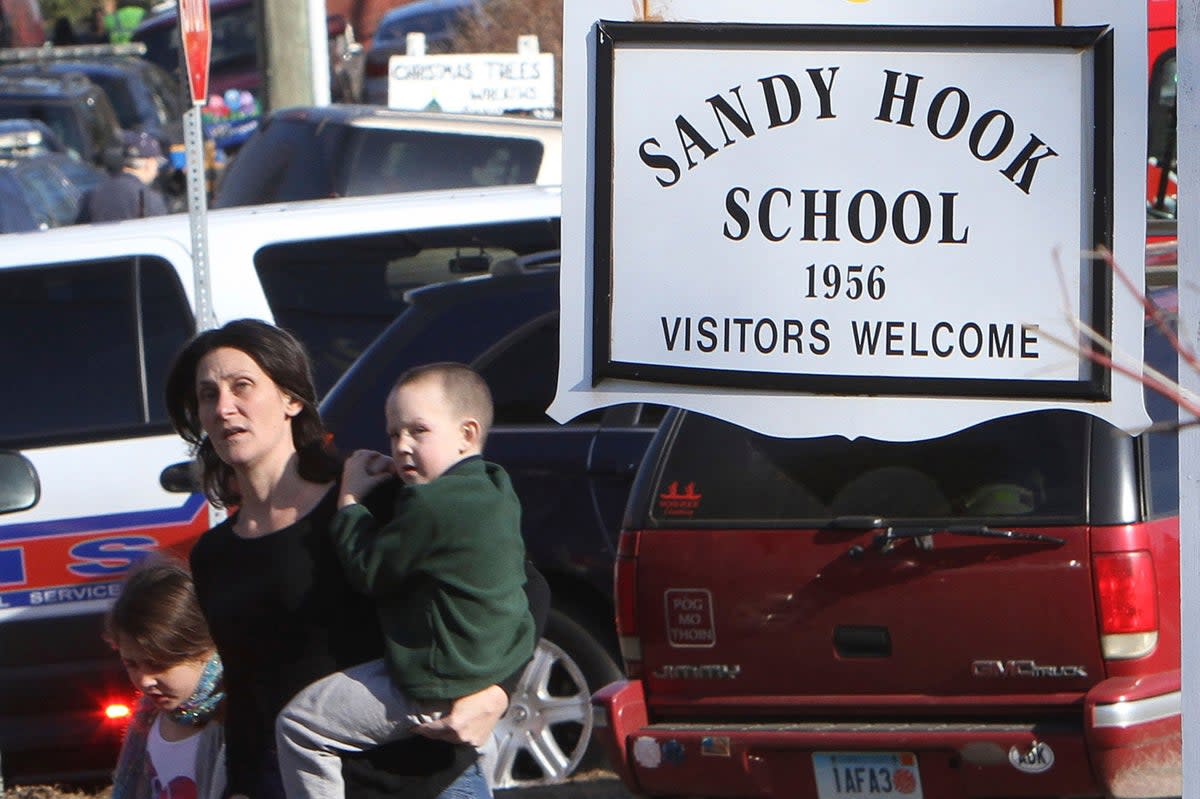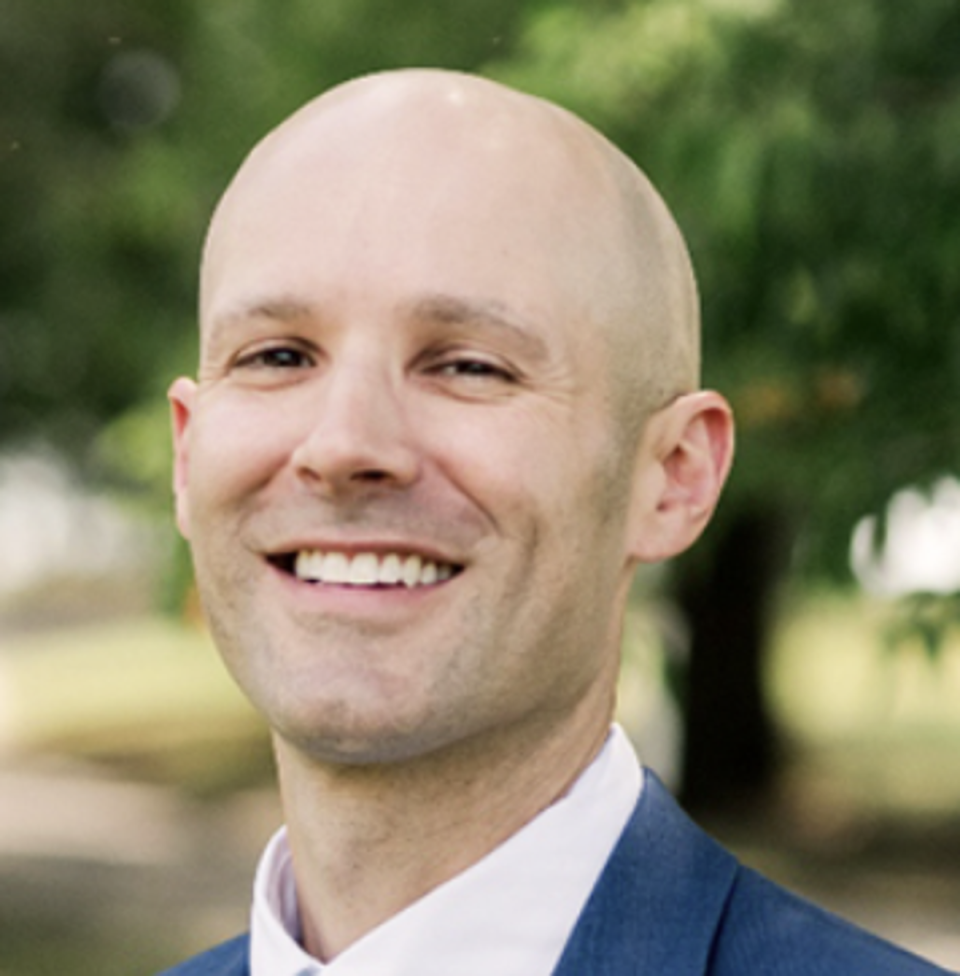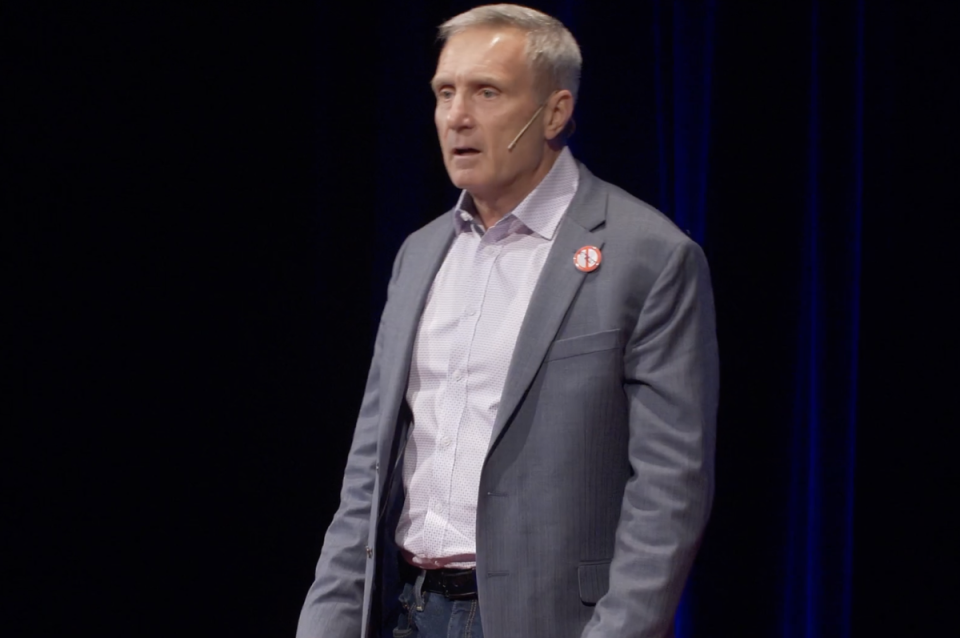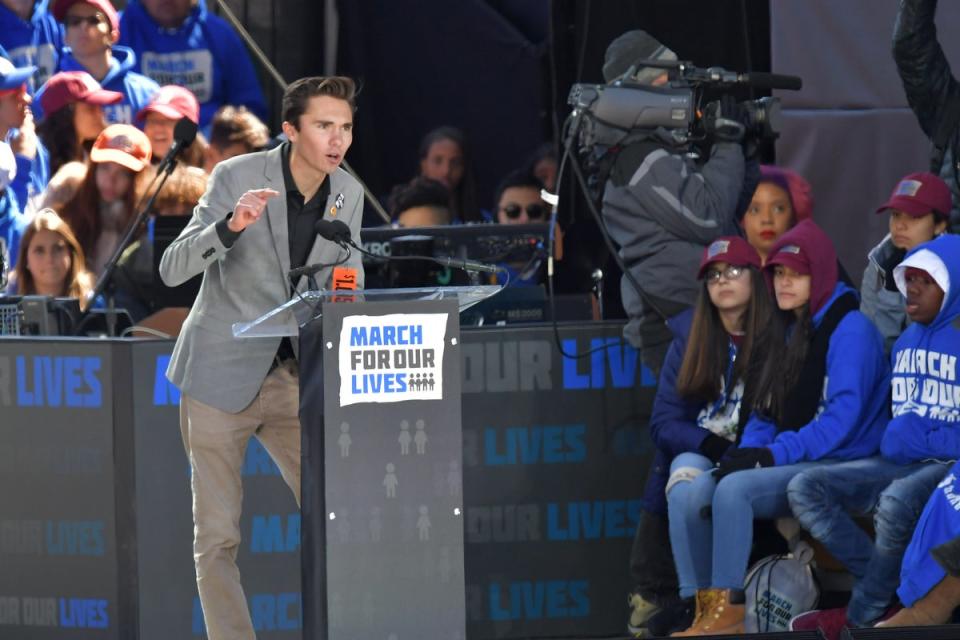Mass shooters crave notoriety. Here’s how media plays a major role in that

- Oops!Something went wrong.Please try again later.
When a white supremacist armed with an arsenal of automatic weapons murdered 51 worshippers at two mosques in Christchurch in 2019, he live-streamed the attack in the hopes his racist ideology would go global.
Speaking to the New Zealand Parliament four days later, prime minister Jacinda Ardern urged the nation to deny the terrorist the notoriety he had been seeking.
“One thing I can assure you – you won’t hear me speak his name,” Ms Ardern said.
The terrorist largely became a nameless, faceless presence in domestic media coverage of the deadly attack in the months that followed. A neo-Nazi manifesto distributed by him prior to the attack was banned by New Zealand authorities, along with heinous online footage of the bloodletting.
The effort to erase his identity and objectives has been applauded by mass shooting experts, who point to a growing body of research that shows suppressing coverage of the perpetrators behind such attacks reduces the dangers of copycats.
“We know that some perpetrators are seeking fame and attention because they have admitted it,” Adam Lankford, a criminal justice professor at the University of Alabama, told The Independent.
“Committing a mass shooting is one of the only ways someone can guarantee himself instant fame, without exceptional skills or abilities.”
Unlike most criminal acts, the random killing of strangers in peace time for no financial gain is learned behaviour, says Prof Lankford, author of the 2013 book The Myth Of Martyrdom.
“Robbery and theft are found in every culture, stealing, aggression, violence, even killing are found in every context. Mass shootings are not.”
And would-be shooters are often driven to kill the largest number of victims possible.
“The more victims you kill, the more fame and attention you get,” he says.
In the hours after the mass shooting at an Independence Day parade in Highland Park, Illinois, police released the then-at-large suspect’s name and image to mobilise the public to help locate and apprehend him. Authorities later said he came close to committing further attacks before being arrested after a witness saw him and notified police.
But once the threat to the public had passed, Prof Lankford believes there should have been a total blackout on mentioning his name.
Biographical details of mass shooters circulate from mainstream media channel to social media, eventually winding up on private messageboards where their background and actions are analysed and glorified by aspiring perpetrators, he said.
“There are forums dedicated to the worship of these individuals,” Prof Lankford tells The Independent.

“After we forget about the names of those people, they take on a life of their own online.”
In one study, Prof Lankford compared the clicks and column inches given to seven mass killings between 2013 and 2017 with coverage of more than 600 celebrities over the same time period.
He found that those mass killers received more attention than top movie stars such as Tom Cruise, Brad Pitt, and Jennifer Aniston, and garnered approximately $75m worth of free media coverage.
Prof Lankford also believes the media tends to elevate stories about mass shooters beyond the interest levels that readers have for them.
He’s conducted qualitative studies examining media coverage of shootings compared to how often people are searching for their name on Google or Twitter. Often, he says, news coverage outweighs demand.
‘They want notoriety, they want to be famous’
After his arrest, Brenton Tarrant, the Australian national who committed the Christchurch mosque shootings, told investigators that he had frequented right-wing discussion boards on 4chan and 8chan while planning the attack, and also found YouTube to be “a significant source of information and inspiration”.
He also said he’d been inspired by the Norwegian terrorist who killed 77 in 2011, and the neo-Nazi who murdered 11 worshippers at the Emanuel African Methodist Episcopal Church in South Carolina in 2015.
Since then, he has himself inspired other mass shooters, such as the perpetrator of an attack on the Chabad of Poway synagogue in San Diego in 2019 that left one dead and three injured.
Likewise, the Sandy Hook Elementary School shooter kept a spreadsheet of mass shootings, while the Pulse nightclub killer called a television station mid-attack.
As the research has solidified in recent years, gun control organisations and victim rights’ groups have added their voices to calls to starve mass shooters of attention.

Tom and Caren Teves, who lost their 24-year-old son Alex in the movie theatre shooting in Aurora, Colorado, in 2012, established the “No Notoriety” campaign after being dismayed at the level of attention paid to their son’s killer.
The campaign proposes a “challenge” to the media to be responsible “when reporting on individuals who commit or attempt acts of rampage mass violence” and avoid publishing the names or photos of these individuals.
“Almost every single random, mass shooter has something in common,” Mr Teves said during a Ted Talk in 2020.
“They want notoriety, they want to be famous,” he said. “And the media continues to give them exactly what they seek.”
They recommend the press focuses on the victims and survivors, and elevates their lives above the killer’s actions, not just to minimise the risk of contagion effect, but to avoid revictimising bereaved families.
They ask media to follow researched backed principles: report on the mindset, demographics and motives of the shooters, limit use of the shooter’s name to once per article, and never in headlines, and refuse to publish any of their self-serving material.
“This is not censorship,” Mr Teves said.

David Hogg, the co-founder of the student-led March for Our Lives and a survivor of the 2018 Parkland shooting, has long advocated for a blanket ban on naming mass shooters.
In the aftermath of Highland Park, he called on social media users to push back when news outlets name or picture perpetrators.
“I think I found something we can all (left and right) agree on and do right now to help prevent these shootings,” he tweeted on 7 July.
“I assure you reporters would start thinking twice about saying the name or showing the photo if they got tons of comments telling them to remove the name and photo every time.”
The FBI-sponsored Don’t Name Them campaign, launched in 2014, says that sensational coverage creates a “call to action for a like-minded killer to take their plans and thoughts and make them into deeds”.
‘The public has every right to know’
“This is the most horrific event to happen in Collierville history,” Collierville Police Department police chief Dale Lane said as he addressed media on 23 September last year.
A disgruntled vendor who ran the sushi counter at Kroger’s grocery store on the outskirts of Memphis, Tennessee, had opened fire, killing one and injuring more than a dozen, before turning the gun on himself.
The next day, a lieutenant with the department held a briefing in which he was asked for more details about the shooter.
Instead of saying his name, Lt David Townsend held up a piece of yellow paper with the gunman’s name, Uk Thang, and date of birth.
“The police here were very reticent to reveal the shooter’s name,” Thomas Hrach, an associate professor of journalism at the University of Memphis, told The Independent.
“I noticed there wasn’t a lot of coverage on who this person was.”
Prof Hrach has studied media coverage in the week after mass shootings from Columbine in 1999 to the killings at a FedEx operation in Indianapolis in 2021.
He says he detected a turning point after the Sandy Hook shooting in 2012.
“There seemed to be a recognition that giving people publicity for this feeds into the reason that they’re doing it.”
Since then, he believes the news media has made more of a conscious effort to minimise use of killers’ names.
Still, he believes the media’s job is to try to “help the public make sense things that don’t seem to make sense”.
“I’m really torn because I’m a journalist myself,” he says.
”The public has every right to know, and needs to know, who these people are, what their background is, what their motivations are, if we’re ever going to solve this problem.”
Curiosity aside, Prof Lankford implores media outlets to follow guidelines set out by the Society of Professional Journalists’ code of ethics, which calls on reporters to avoid pandering to lurid curiosity, balance the public’s need for information against potential harm, and to always seek to minimise harm.
“Things are getting worse in terms of the frequency of fame-seeking mass shooters both in the US and abroad and the severity or deadliness of their attacks,” Prof Lankford said.
“Changing media coverage would be an important part of trying to push back against this problem.”

